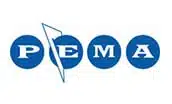Thermal Screw Processors Applications & Materials
KWS Thermal Screw Processors are used in a wide variety of applications to cool and heat bulk materials. Many applications include cooling hot bulk materials to a safe temperature for further processing or heating bulk materials to make a process more efficient.
KWS Thermal Screw Processors provide heat transfer to dry bulk materials. The drying of wet bulk materials is the expertise of many other process equipment manufacturers. It is very common for KWS to supply a KWS Thermal Screw Processor at the discharge of a rotary dryer to cool a hot bulk material.
KWS Thermal Screw Processors cool or heat bulk materials through indirect heat transfer. The heat transfer medium or thermal fluid never comes in direct contact with the bulk material. Since the heat transfer process is continuous, KWS Thermal Screw Processors deliver maximum heat transfer per volume of bulk material.
Common Applications for KWS Thermal Screw Processors
Cooling
Cooling hot bulk materials is the most common application for KWS thermal Screw Processors. Bulk materials with temperatures as high as 1,800-degrees F can be cooled down to as low as 150-degrees F in a very compact foot print.
- Bottom Ash
- Fly Ash
- Dried Municipal Sludge/Biosolids
- Cement
- Soda Ash
- Petroleum Coke
- Dried Drill Cuttings
Heating
Bulk Materials can be heated as high as 1,000-degrees F using KWS Thermal Screw Processors. The indirect heat transfer process offers many advantages over that of direct heating technologies.
- Lime
- Clay
- Bakery Mixes
- Aluminum Hydroxide
Common Bulk Materials and Specific Heat Values
Determining an accurate specific heat value for your bulk material is important for accurately sizing the KWS Thermal Screw Processor and the success of your process. A small change in specific heat value can have an impact on the size of the processor.
| Bulk Material | Specific Heat (BTU/lbm°F) |
|---|---|
| Aluminum | 0.21 |
| Antimony | 0.05 |
| Asbestos cement board | 0.20 |
| Ashes | 0.20 |
| Asphalt | 0.22 |
| Barite | 0.11 |
| Barium | 0.07 |
| Basalt rock | 0.20 |
| Bismuth | 0.03 |
| Bone | 0.11 |
| Borax | 0.24 |
| Boron | 0.31 |
| Brass | 0.09 |
| Brick, common | 0.22 |
| Brick, hard | 0.24 |
| Bronze, phosphor | 0.09 |
| Cadmium | 0.06 |
| Calcite | 0.20 |
| Calcium | 0.15 |
| Calcium carbonate | 0.18 |
| Calcium sulfate | 0.27 |
| Carbon, graphite | 0.17 |
| Cement, dry | 0.37 |
| Cement, powder | 0.20 |
| Cellulose | 0.37 |
| Charcoal | 0.24 |
| Chalk | 0.22 |
| Charcoal, wood | 0.24 |
| Chromium | 0.12 |
| Clay | 0.22 |
| Coal, anthracite | 0.30 |
| Coal, bituminous | 0.33 |
| Cobalt | 0.11 |
| Bulk Material | Specific Heat (BTU/lbm°F) |
|---|---|
| Coke | 0.20 |
| Concrete, stone | 0.18 |
| Concrete, light | 0.23 |
| Copper | 0.09 |
| Dolomite rock | 0.22 |
| Earth, dry | 0.30 |
| Fats | 0.46 |
| Fiberboard, light | 0.60 |
| Fiber hardboard | 0.50 |
| Fire brick | 0.25 |
| Fluorite | 0.22 |
| Fluorspar | 0.21 |
| Garnet | 0.18 |
| Glass | 0.20 |
| Glass,wool | 0.16 |
| Gold | 0.03 |
| Granite | 0.19 |
| Graphite | 0.17 |
| Gypsum | 0.26 |
| India rubber, min | 0.27 |
| India rubber, max | 0.98 |
| Iridium | 0.03 |
| Iron | 0.11 |
| Limestone | 0.217 |
| Litharge | 0.21 |
| Lead | 0.03 |
| Lithium | 0.86 |
| Magnetite | 0.16 |
| Manganese | 0.11 |
| Magnesia | 0.20 |
| Marble, mica | 0.21 |
| Mercury | 0.03 |
| Bulk Material | Specific Heat (BTU/lbm°F) |
|---|---|
| Mica | 0.12 |
| Mineral wool blanket | 0.20 |
| Paper | 0.33 |
| Paraffin wax | 0.70 |
| Peat | 0.45 |
| Plaster, light | 0.24 |
| Plaster, sand | 0.22 |
| Plastics, foam | 0.30 |
| Plastics, solid | 0.40 |
| Platinum | 0.03 |
| Porcelain | 0.26 |
| Potassium | 0.13 |
| Quartz mineral 55 – 212oF | 0.19 |
| Rock salt | 0.22 |
| Rubber | 0.48 |
| Salt | 0.21 |
| Sand, dry | 0.19 |
| Sandstone | 0.22 |
| Sawdust | 0.21 |
| Silica aerogel | 0.20 |
| Silk | 0.33 |
| Silver | 0.06 |
| Sodium | 0.30 |
| Soil, dry | 0.19 |
| Soil, wet | 0.35 |
| Stone | 0.20 |
| Sulphur | 0.17 |
| Topaz | 0.21 |
| Tungsten | 0.03 |
| Vanadium | 0.12 |
| Vermiculite | 0.20 |
| Vulcanite | 0.33 |
| Wood, balsa | 0.70 |
| Wood, oak | 0.48 |
| Wood, white pine | 0.60 |












